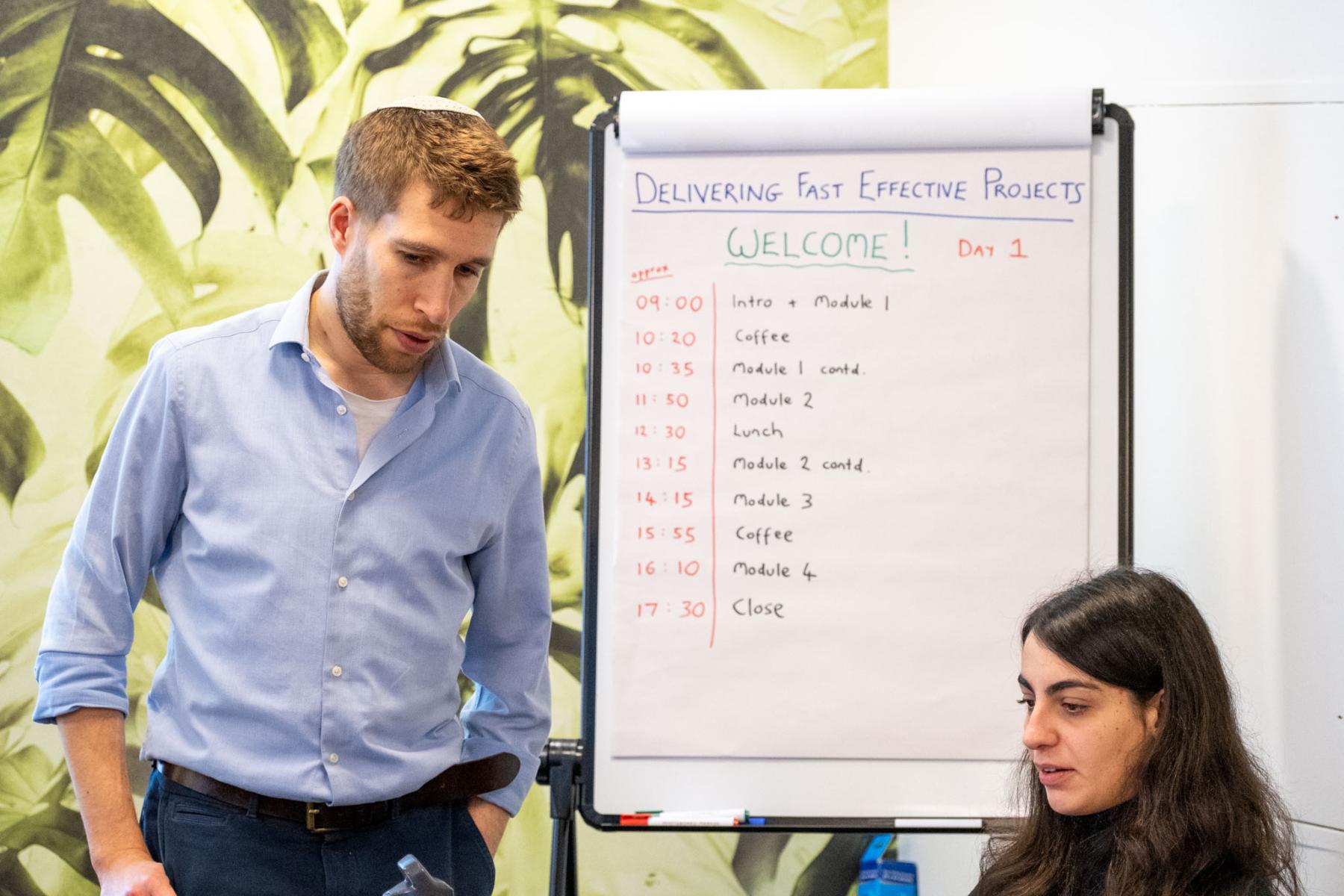
"The most useful training I've received in my career."
3 or 4 days, in-person or virtual
Delivering Fast Effective Projects (FEP) focuses on applying problem structuring and project management tools to support fast and effective project delivery in public services. Suitable for policy and delivery professionals alike, participants learn and practise a range of structured tools and approaches to navigate demanding project environments and achieve results.
Our facilitators are all experienced consultants at The PSC who use these tools and approaches on a daily basis with their public service clients.
The course is highly interactive, and covers the following modules:
- Module 1 – Launching the project
- Module 2 – Structuring the problem & planning the work
- Module 3 – Engaging stakeholders
- Module 4 – Developing hypotheses
- Module 5 – Gathering data & conducting analysis
- Module 6 – Creating high-performing teams
- Module 7 – Process improvement & Plan Do Study Act (PDSA)
- Module 8 – Modelling & options appraisal
- Module 9 – Planning for change
- Module 10 – Developing and communicating recommendations
- Module 11 – Closing the project
We recognise that there’s a lot for participants to take in during this intense course. And we also know that the most valuable personal and organisational development happens when participants apply their learning to their everyday work environment and when they share their favourite FEP frameworks and tools with their colleagues. That's why we run an optional fourth day, scheduled four to six weeks after the initial course, to revisit course material and practically use the FEP tools in the context of real-life projects that participants are working on.
This course can also be supplemented by a follow-up mentoring programme which further supports participants to practically apply the tools and approaches in their day-to-day work - and to help other colleagues do the same.
You can find further details about the individual modules and course materials below.











